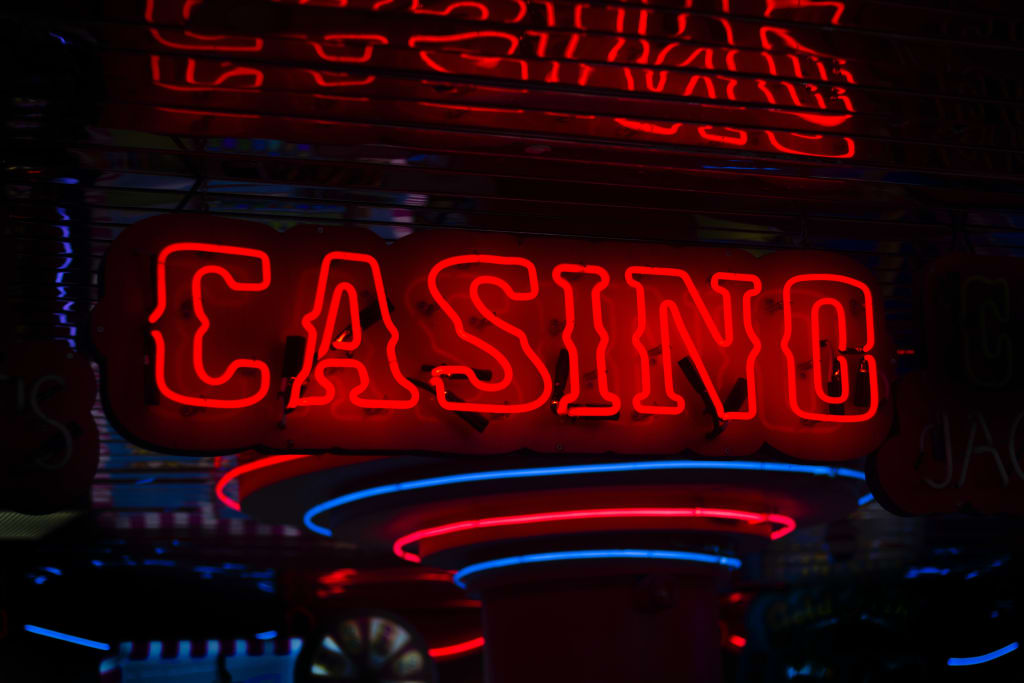Anti-Money Laundering in Casinos: A Safety Net
Because casinos handle large sums of money, security is a top priority for any casino. Criminal activity is just around the corner in places where large sums of money are involved. It is then the responsibility of casinos to implement measures and guidelines to prevent such illegal activities from occurring. While there are many different types of casino crimes that can occur, money laundering is the most commonly associated with casinos.

Because casinos handle large sums of money, security is a top priority for any casino. Criminal activity is just around the corner in places where large sums of money are involved. It is then the responsibility of casinos to implement measures and guidelines to prevent such illegal activities from occurring. While there are many different types of casino crimes that can occur, money laundering is the most commonly associated with casinos.
Because casinos are a cash-based industry, it is not uncommon for people to arrive or depart with truckloads of cash. However, this is precisely the type of location that criminals seek when beginning a money-laundering operation. Casinos are always at risk of becoming a target of such activities, so security and vigilance are critical.
A sneak-peak into money laundering
Money laundering is the illegal process of converting large sums of black money, i.e., money obtained through criminal activities such as drug or sex trafficking, into clean cash from a legitimate source. Money laundering is a method of cleaning or "laundering" dirty money. While the concept of money laundering is simple, the actual process is a little more complicated.
The procedure is divided into three stages: placement, layering, and integration. During the placement stage, illegal funds are deposited into legal financial systems, such as bank accounts registered to anonymous corporations or offshore accounts. The criminal money is cleaned and disguised as coming from a legal, economic system in this location.
The second stage is known as "layering," and it occurs when criminals make the illegal money difficult for authorities to detect in these laundering activities. This is accomplished by strategically layering transactions and falsifying bookkeeping to obscure the money trail. This is an important stage in the process because the source of the money is unknown.
The third and final stage is "integration," in which criminal money is absorbed into the economy. This is where criminals pass the money through places like casinos or invest it in real estate, allowing them to create a plausible explanation for the source of the funds. Following this, criminals can reunite with their "legal" money. After this point, distinguishing between legal and illegal wealth becomes difficult. It should be noted that these stages overlap, with some types of money laundering skipping the first step of "placement."
Former Mexican President Enrique Pea Nieto once stated that he believes money laundering provides oxygen to organised crime. Money laundering is prohibited because it allows criminals to profit from their actions. Criminals will struggle to explain where they got these large sums of money if they do not launder their ill-gotten gains. Every year, 90 percent of global money laundering activities go undetected, according to a United Nations report. Once the money has entered the economy, tracing its origins becomes nearly impossible. The statistics demonstrate how effective the method is when used correctly, and why criminals continue to look for new ways to commit the crime.
Casinos – an easy target
Because financial transactions in casinos are usually on a large scale, it is simple for criminals to use them to launder money. This is accomplished by purchasing chips from casinos in exchange for the cash they have on hand. After returning the chips, the criminals can return without gambling and collect checks from the casinos. Once these checks have been deposited in the bank, they can be used to purchase any item. This is the method by which money is laundered in casinos.
By submitting cash and receiving a check in exchange for the chips, the illegal cash now has a legitimate source. Staff and security teams in legal casinos, on the other hand, are now extremely well-trained to detect any suspicious activity. Casinos take this precaution because any form of criminal activity is harmful to legitimate businesses and should be avoided.
READ THE MORE ONLINE GAMING RELATED NEWS HERE:
PokerBaazi Brings New Tournament ‘10 mein 10 Lakhpati’
RummyBaazi Unveils India’s First Multi-Card Gaming App with CardBaazi
Kerala HC Lifts Ban from Online Rummy and Declares it as a Game of Skill
About the Creator
Amit Kr
Hi I am Amit Kr from India. I love writing on various topics. I love nature, music, pets and weekend traveling.






Comments
There are no comments for this story
Be the first to respond and start the conversation.